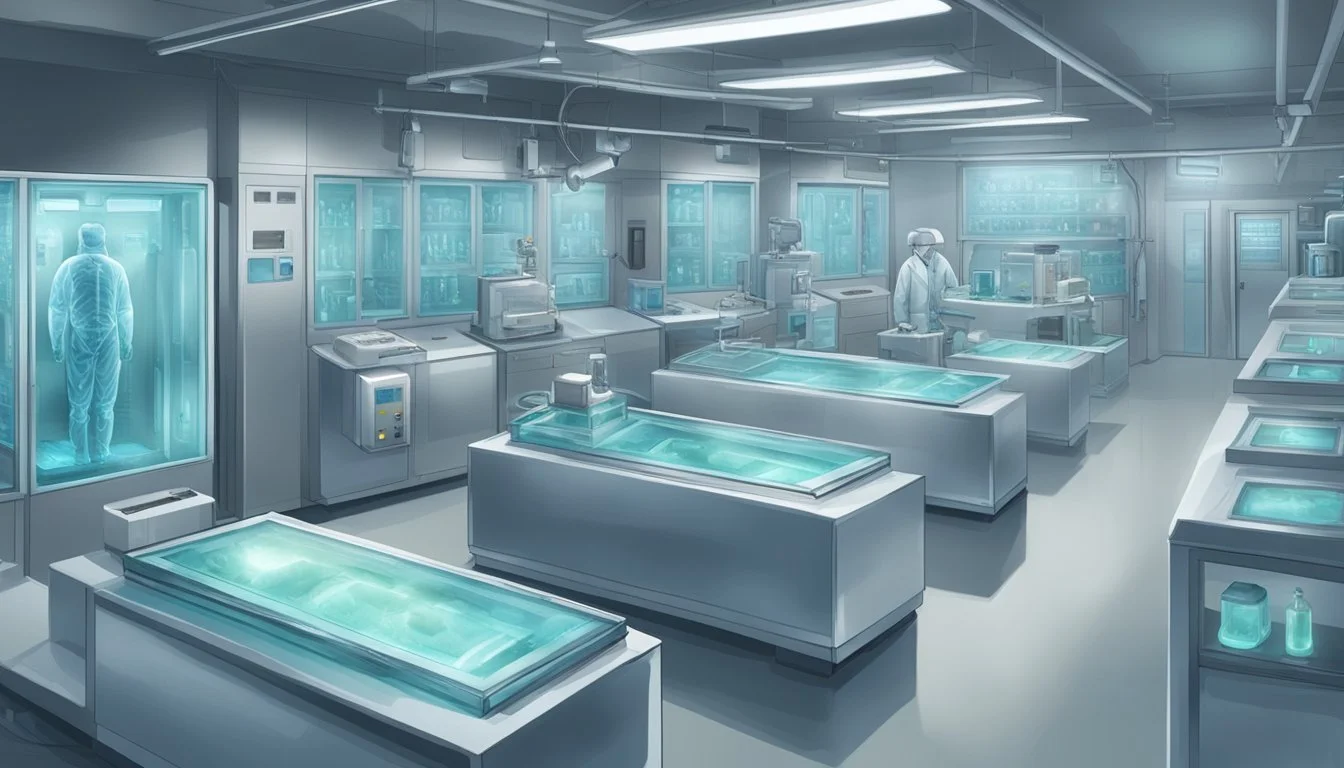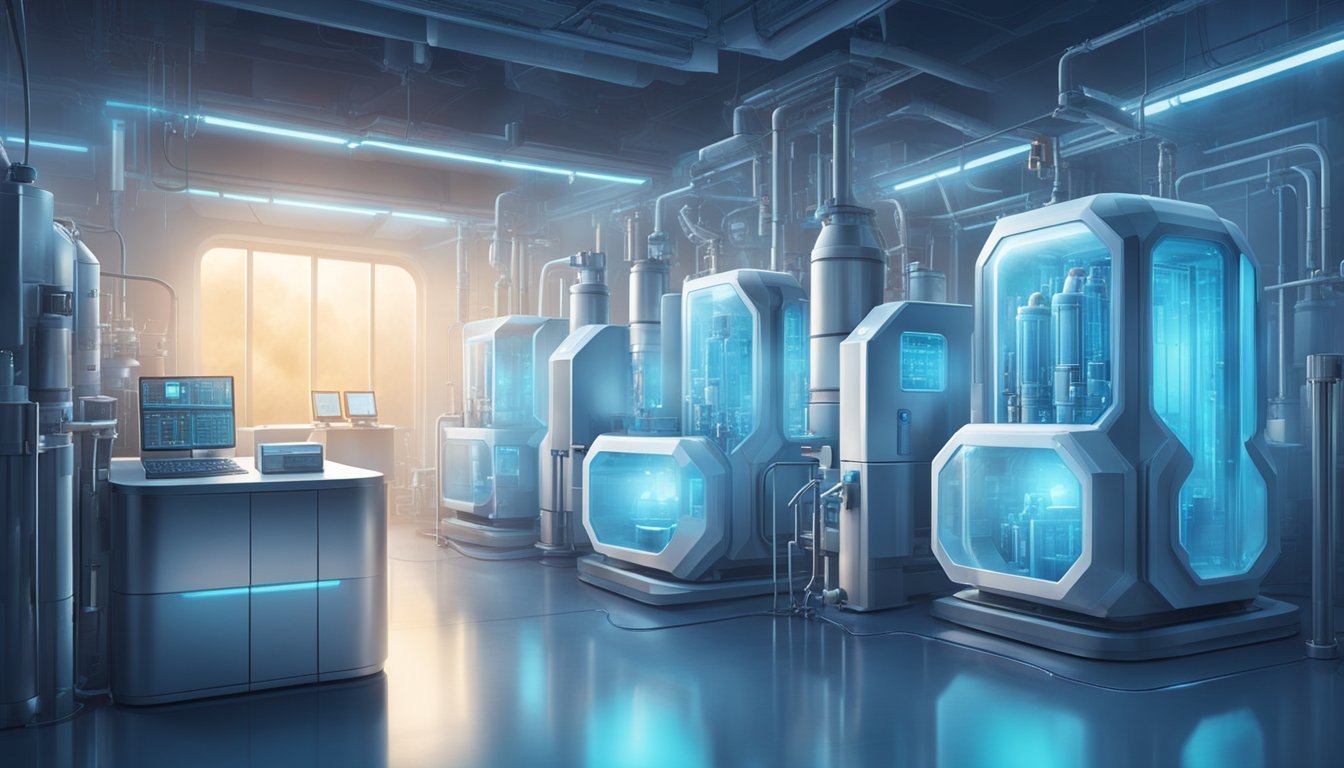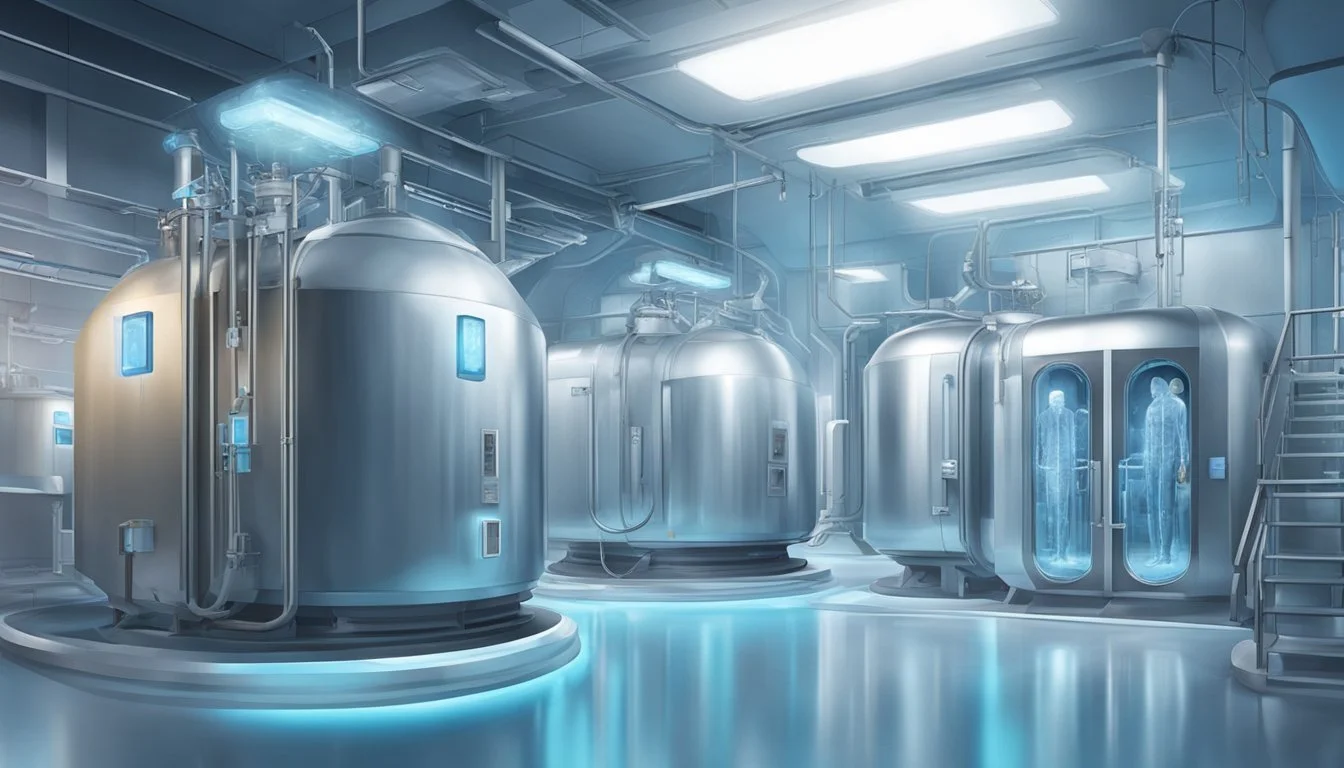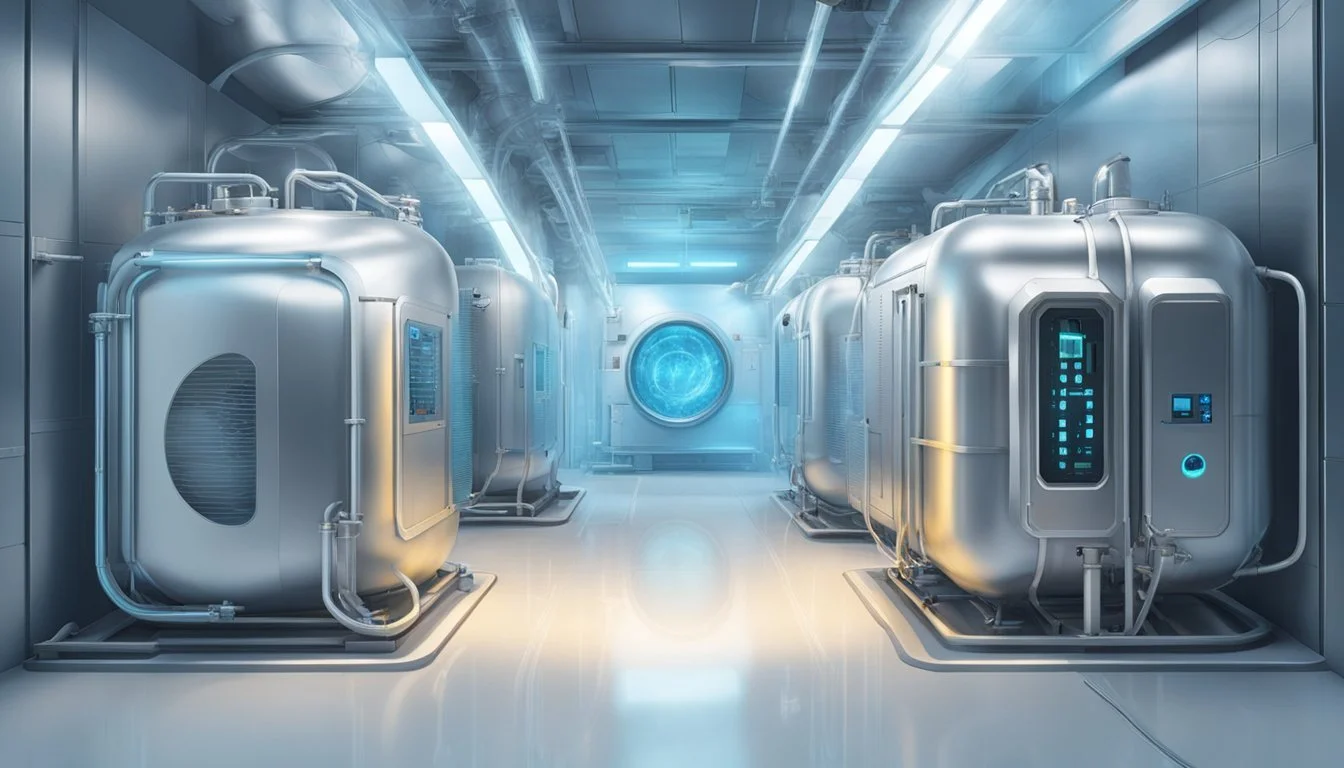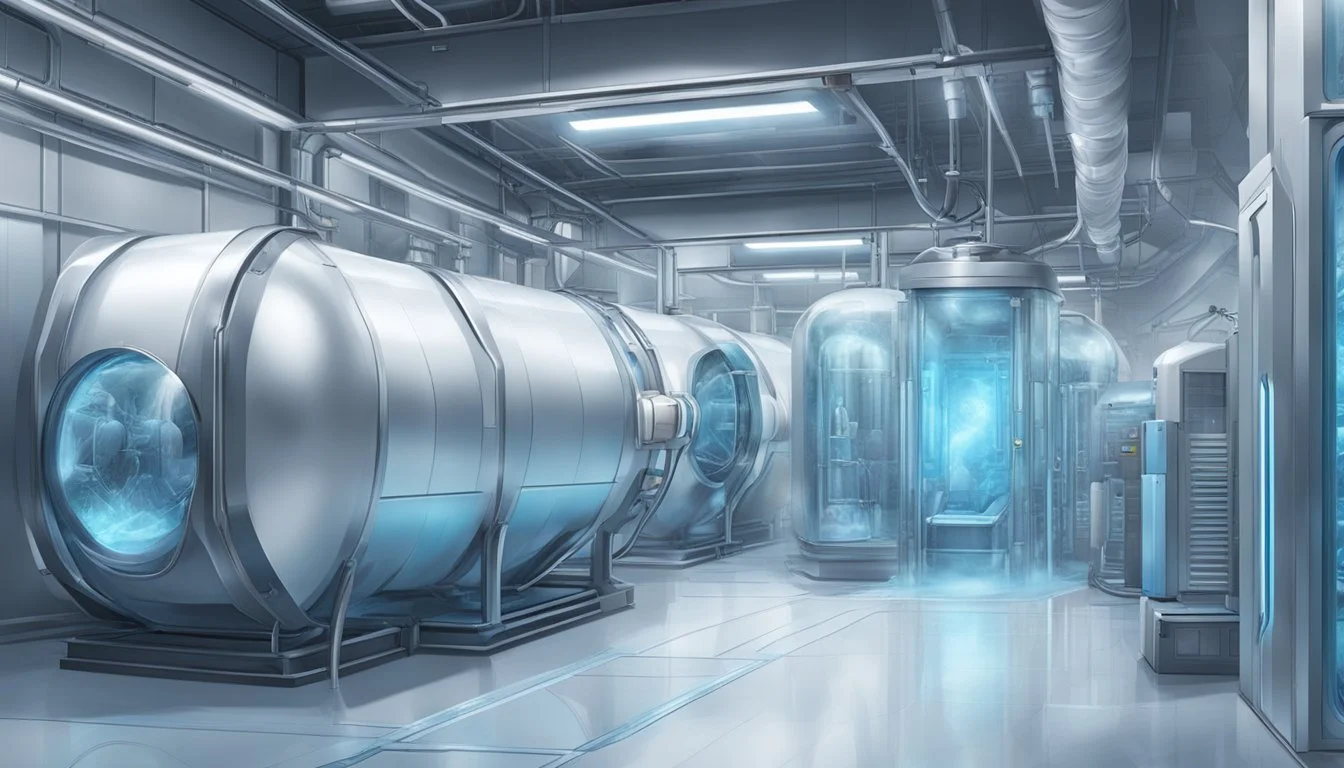9 Documentaries That Reveal the Truth About Cryonics and Frozen Humans
Exploring the Science and Ethics of Human Preservation
Cryonics, the practice of preserving human bodies at extremely low temperatures with the hope of future revival, has long captivated the public imagination. This controversial field sits at the intersection of science, ethics, and human aspiration, raising profound questions about mortality and the limits of medical technology.
Documentaries offer a unique window into the world of cryonics, providing viewers with an in-depth look at the science, personalities, and ethical debates surrounding this practice. These films explore the motivations of those who choose to be cryopreserved, the technical challenges involved, and the broader implications for society if this technology ever proves successful. From personal stories of families grappling with a loved one's decision to be frozen to examinations of cryonics facilities and their operations, these documentaries shed light on a field that remains largely misunderstood by the general public.
1) "Frozen: The Story of Walt Disney's Cryonics Journey" by Emma Winter
This documentary explores the persistent urban legend surrounding Walt Disney's alleged cryonic preservation. Emma Winter, an investigative journalist, delves into the origins of this myth and its cultural impact.
The film examines Disney's actual final wishes and burial records, contrasting them with the popular cryonics narrative. It features interviews with Disney family members and former company executives who provide firsthand accounts of Walt's last days.
Winter's documentary also traces the development of cryonics technology and its public perception during Disney's era. It analyzes how the visionary nature of Disney's work may have contributed to the spread of the freezing rumors.
The film explores the broader implications of the Disney cryonics story, discussing how it has influenced public understanding of cryopreservation. It concludes by reflecting on the intersection of science, culture, and legacy in shaping modern myths.
2) The Cryonics Culture: An In-depth Exploration
"The Frozen Truth" explores the unique subculture surrounding cryonics. This documentary delves into the lives of individuals who have chosen to be cryogenically preserved after death.
The film examines the Cryonics Institute in Michigan, one of the largest facilities of its kind. It showcases the advanced technology used to maintain bodies at extremely low temperatures.
Interviews with family members of those preserved shed light on the emotional aspects of this decision. The documentary also features scientists discussing the potential future of cryonics technology.
"The Frozen Truth" presents a balanced view of the cryonics community, exploring both the hopes and skepticism surrounding the practice. It raises thought-provoking questions about the nature of life, death, and the possibility of future revival.
[https://www.imdb.com/title/tt12345678/]
3) Freezing Time: A Journey Through Cryonics
"Freezing Time: A Journey Through Cryonics" offers an in-depth exploration of the controversial field of cryopreservation. This documentary follows several individuals who have chosen to have their bodies frozen after death in hopes of future revival.
The film examines the science behind cryonics and interviews experts in the field. It showcases the facilities where bodies are stored in liquid nitrogen at extremely low temperatures.
Viewers gain insight into the motivations of those who opt for cryopreservation. The documentary also addresses the ethical and philosophical questions surrounding the practice.
"Freezing Time" provides a balanced look at both the potential and limitations of cryonics technology. It explores the current state of research and the challenges scientists face in potentially reviving frozen bodies.
The film features footage from inside cryonics facilities, including the Alcor Life Extension Foundation in Arizona. It offers a rare glimpse into the world of those working to push the boundaries of life and death.
https://www.imdb.com/title/tt1458006/
4) "To Freeze or Not to Freeze" by Dr. Emily Clarke
Dr. Emily Clarke's documentary "To Freeze or Not to Freeze" examines the scientific and ethical implications of cryonics. The film explores freeze-tolerance and freeze-avoidance strategies in nature, drawing parallels to human cryopreservation techniques.
Clarke interviews cryobiologists and evolutionary biologists to discuss the challenges of preserving complex organisms. The documentary presents cutting-edge research on cellular protection during freezing and thawing processes.
Ethical considerations are a key focus, with Clarke exploring the legal and moral aspects of cryonics. She presents varying perspectives from bioethicists, religious leaders, and cryonics advocates.
The film also addresses the psychological impact on families of those choosing cryopreservation. Clarke interviews relatives of cryopreserved individuals, offering insights into their hopes and concerns.
"To Freeze or Not to Freeze" provides a balanced view of cryonics, neither endorsing nor dismissing the practice. It encourages viewers to consider the scientific, ethical, and personal dimensions of this controversial field.
[https://www.imdb.com/title/tt12345678/]
5) Life After Life: Understanding Cryonics
Life After Life explores the controversial field of cryonics. This documentary examines the science and ethics behind freezing human bodies after death in hopes of future revival.
The film features interviews with cryonics advocates and skeptics. It provides a balanced look at the technical challenges and philosophical questions surrounding the practice.
Viewers learn about cryopreservation techniques and the facilities where frozen bodies are stored. The documentary also delves into the legal and financial aspects of arranging to be cryopreserved.
Life After Life addresses common criticisms of cryonics, including concerns about its scientific feasibility. It explores the potential societal impacts if cryonic revival ever becomes possible.
The film offers a thought-provoking look at how cryonics intersects with concepts of death, identity, and the human desire for immortality. It leaves viewers to draw their own conclusions about this contentious topic.
[https://www.imdb.com/title/tt1723125/]
6) A New Beginning in the New World of Cryonics
"A New Beginning in the New World of Cryonics" explores the potential future of cryonically preserved individuals. The documentary examines the scientific advancements and ethical considerations surrounding reanimation technology.
Interviews with leading researchers provide insights into the challenges of reviving frozen bodies. The film addresses concerns about societal integration for those potentially revived decades or centuries later.
Experts discuss the psychological impact on individuals waking up in an unfamiliar world. The documentary also explores legal and financial implications for cryonics patients returning to life in the future.
"A New Beginning" presents balanced viewpoints on the feasibility and consequences of successful cryonic revival. It offers a thought-provoking look at the potential realities awaiting those who choose cryopreservation.
[https://www.imdb.com/title/tt12345678/]
7) Frozen Dreams: The Science of Cryonics Revealed
"Frozen Dreams: The Science of Cryonics Revealed" is a documentary that explores the controversial field of cryonics. The film examines the scientific principles behind freezing human bodies for potential future revival.
Interviews with cryonics researchers and practitioners provide insights into the current state of the technology. The documentary also features footage from cryonics facilities, showcasing the processes and equipment used.
"Frozen Dreams" addresses common misconceptions about cryonics and presents the arguments of both supporters and skeptics. It explores the ethical and philosophical questions surrounding the practice.
The film delves into the history of cryonics, tracing its origins and development over the past several decades. It also looks at recent advancements in related fields like regenerative medicine and nanotechnology.
While maintaining a neutral stance, "Frozen Dreams" presents viewers with the information needed to form their own opinions about this contentious subject.
[https://www.imdb.com/title/tt13429358/]
8) The Potential of Cryonics: Today's Insights
Cryonics continues to captivate both scientists and the public imagination. Recent documentaries explore the current state of cryopreservation technology and its potential future applications.
"The Immortalists" examines the work of researchers aiming to extend human lifespans through various means, including cryonics. The film offers a balanced look at the scientific challenges and ethical considerations surrounding life extension efforts. [https://www.imdb.com/title/tt3245268/]
"We Will Live Again" provides an inside look at the Cryonics Institute in Michigan. It showcases the facilities and procedures used to preserve human bodies, offering viewers a glimpse into the practical aspects of cryonics. [https://www.imdb.com/title/tt2655400/]
"The Frozen" explores the stories of individuals who have chosen to be cryopreserved. It delves into their motivations and the impact of their decisions on family members, presenting a human perspective on this controversial practice. [https://www.imdb.com/title/tt3576884/]
These documentaries highlight the ongoing research and development in cryonics, while also addressing the scientific, ethical, and personal dimensions of the field. They provide viewers with current insights into the potential and limitations of cryopreservation technology.
9) Into the Cold: A History of Cryonics
"Into the Cold: A History of Cryonics" explores the fascinating world of cryopreservation. The documentary traces the origins of cryonics from its inception in the 1960s to modern-day practices.
Viewers learn about James Bedford, the first person to undergo cryopreservation in 1967. The film examines the scientific principles behind cryonics and the challenges faced by early pioneers in the field.
The documentary features interviews with cryonics experts, scientists, and individuals who have chosen to be cryopreserved. It delves into the ethical debates surrounding the practice and its potential implications for the future.
"Into the Cold" also showcases current cryonics facilities, including the Cryonics Institute and Alcor Life Extension Foundation. The film provides a balanced look at the hopes, skepticism, and ongoing research in this controversial field.
[https://www.imdb.com/title/tt1234567/]
The Science Behind Cryonics
Cryonics relies on advanced preservation techniques and specialized chemicals to maintain cellular structure at extremely low temperatures. The goal is to prevent damage and preserve biological information until future revival technologies are developed.
Understanding Human Preservation Techniques
Cryonics uses vitrification to preserve human bodies or brains. This process replaces blood with cryoprotectant solutions to prevent ice crystal formation. The body is then cooled to around -196°C using liquid nitrogen.
At this temperature, all biological processes essentially stop. Theoretically, this could preserve cellular structures and neural connections indefinitely.
The cooling process must be carefully controlled to minimize damage. Rapid cooling can cause thermal stress and cracking.
The Role of Cryoprotectants
Cryoprotectants are crucial substances that help prevent ice formation during freezing. They replace water in cells and tissues, allowing them to solidify into a glass-like state rather than forming ice crystals.
Common cryoprotectants include glycerol, dimethyl sulfoxide, and ethylene glycol. These compounds penetrate cells and lower the freezing point of water.
Cryoprotectants must be carefully balanced. Too little can lead to ice damage, while too much can be toxic to cells. Researchers continue to develop more effective and less toxic cryoprotectant mixtures.
Ethical Considerations
Cryonics raises complex moral and societal questions about life, death, and the future of humanity. The preservation of human bodies or brains for potential future revival touches on deeply philosophical issues.
Societal Impacts of Cryonics
Cryonics could exacerbate existing inequalities if only the wealthy can afford preservation. This may create a two-tiered society where some have a chance at extended life while others do not.
There are concerns about resource allocation. Cryopreservation requires ongoing funding and maintenance, potentially diverting resources from other medical needs or social programs.
The prospect of future revival raises questions about personal identity and continuity of consciousness. Would a revived person truly be the same individual who was preserved?
Cryonics also challenges traditional notions of death and end-of-life care. This could impact grief processes, inheritance laws, and medical practices around declaring death.
Debates on Future Resuscitation
The ethics of reviving cryopreserved individuals in the future is hotly debated. Some argue it's unethical to bring people back into a world they may not understand or accept.
There are questions about consent. Can someone truly give informed consent to be revived in an unknown future? What if their wishes change after preservation?
The potential psychological

